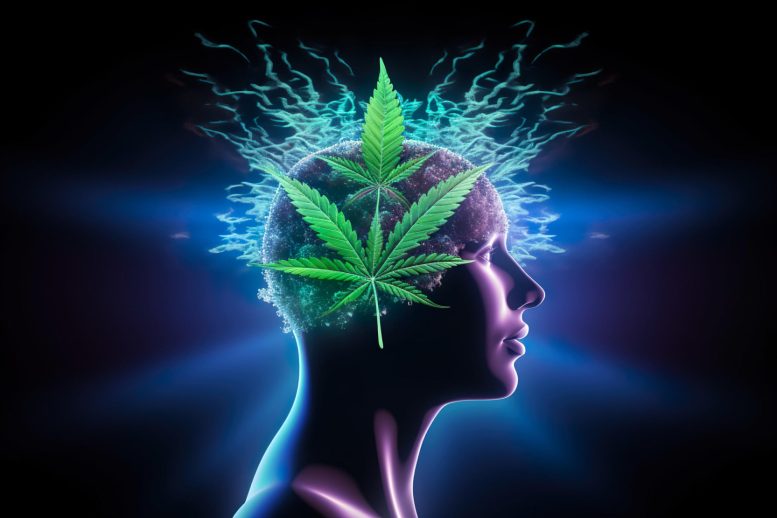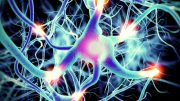
Under stress, the amygdala in mice brains releases the body’s own cannabinoid molecules, reducing stress signals from the hippocampus, according to a Northwestern Medicine study. This study suggests a possible link between impaired cannabinoid signaling in the brain and an increased risk of stress-related psychiatric disorders, like depression and PTSD.
Researchers uncover how stress triggers the same receptors as THC.
During stressful situations, your brain might produce its own cannabinoid substances, functioning to soothe you by stimulating the same receptors in the brain that THC from cannabis plants does.
However, the neural networks and patterns of brain activity regulated by these endogenous cannabinoids were not well known.
A new Northwestern Medicine study in mice has discovered that a key emotional brain center, the amygdala, releases endogenous (the body’s own) cannabinoid molecules under stress, and these molecules dampen the incoming stress alarm from the hippocampus, a memory and emotion center in the brain. These results provide more support for the hypothesis that these endogenous cannabinoid molecules are a body’s natural coping response to stress.
Stress exposure heightens the risk for the development or worsening of psychiatric disorders from generalized anxiety and major depression to post-traumatic stress disorder (PTSD).
“Understanding how the brain adapts to stress at the molecular, cellular, and circuit level could provide critical insight into how stress is translated into mood disorders and may reveal novel therapeutic targets for the treatment of stress-related disorders,” said corresponding study author Dr. Sachi Patel, chair of psychiatry and behavioral sciences at Northwestern University Feinberg School of Medicine and a Northwestern Medicine psychiatrist.
The study could indicate that impairments in this endogenous cannabinoid signaling system in the brain could lead to a greater susceptibility to developing stress-related psychiatric disorders including depression and PTSD, although this remains to be determined in humans, Patel said.
The study will be published Sept. 12 in Cell Reports.
For the study, Northwestern scientists used a new protein sensor that can detect the presence of these cannabinoid molecules at specific brain synapses in real time to show that specific high-frequency patterns of amygdala activity can generate these molecules. The sensor also showed that these molecules were released as a result of several different types of stress in mice.
When scientists removed the target of these cannabinoids, the cannabinoid receptor type 1, it resulted in a poorer ability to cope with stress and motivational deficits in the mice. Specifically, when the receptor target of these endogenous cannabinoids was removed at hippocampal-amygdala synapses, mice adopted more passive and immobile responses to stress and had a lower preference to drink sweetened sucrose water after stress exposure. The latter finding may relate to anhedonia, or the decrease in pleasure, often experienced by patients with stress-related disorders such as depression and PTSD.
One of the leading signaling systems that has been identified as a prominent drug-development candidate for stress-related psychiatric disorders is the endocannabinoid system, Patel said.
“Determining whether increasing levels of endogenous cannabinoids can be used as potential therapeutics for stress-related disorders is the next logical step from this study and our previous work,” said Patel, also the Lizzie Gilman Professor of Psychiatry and Behavioral Sciences. “There are ongoing clinical trials in this area that may be able to answer this question in the near future.”
Reference: “Endocannabinoid release at ventral hippocampal-amygdala synapses regulates stress-induced behavioral adaptation” by Veronika Kondev, Mustafa Najeed, Farhana Yasmin, Amanda Morgan, Niharika Loomba, Keenan Johnson, Danielle N. Adank, Ao Dong, Eric Delpire, Yulong Li, Danny Winder, Brad A. Grueter and Sachin Patel, 12 September 2023, Cell Reports.
DOI: 10.1016/j.celrep.2023.113027
The study was funded by the National Institutes of Health.









Be the first to comment on "Revealing the Brain’s Secret Weapon Against Stress: Natural Cannabinoid Substances"